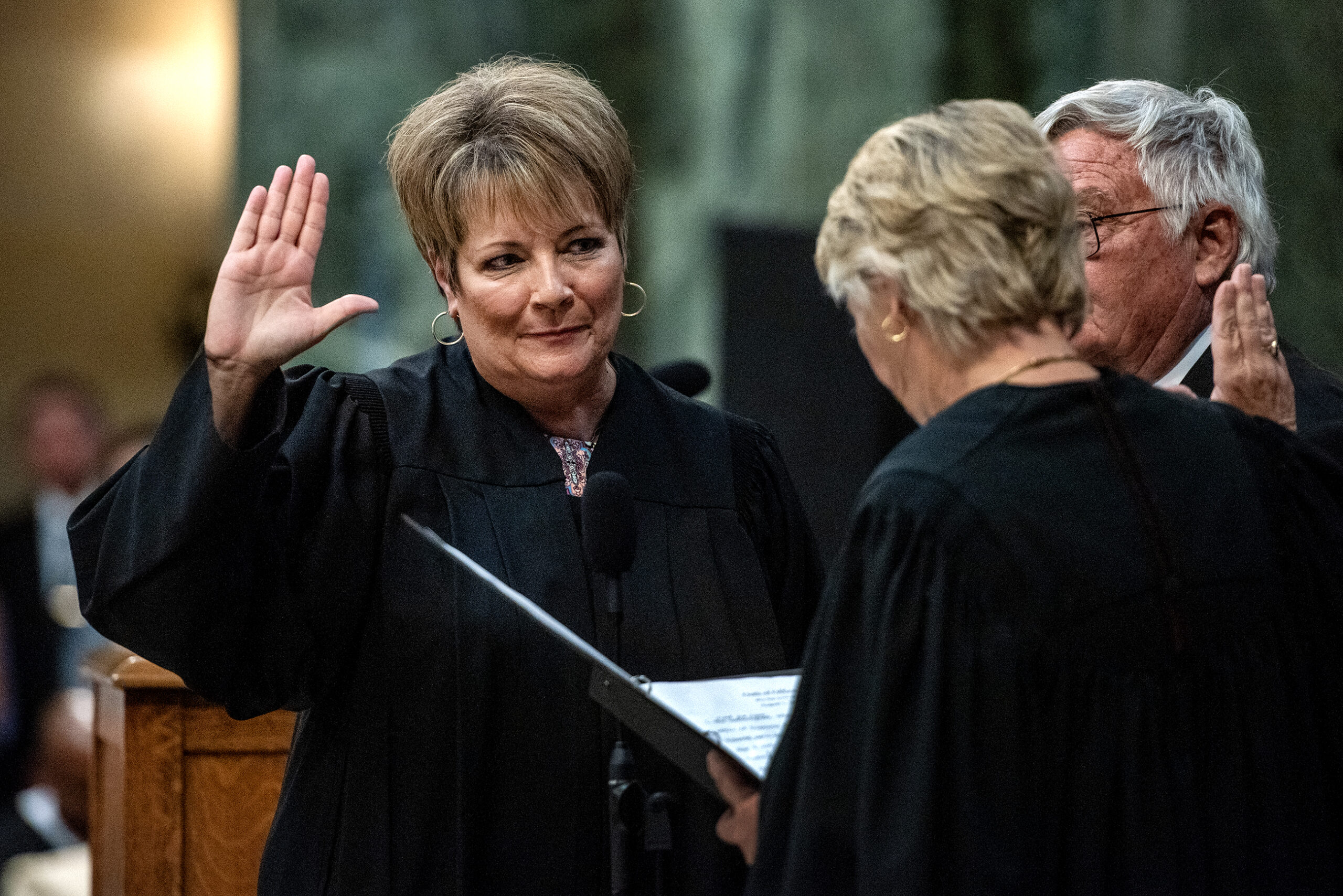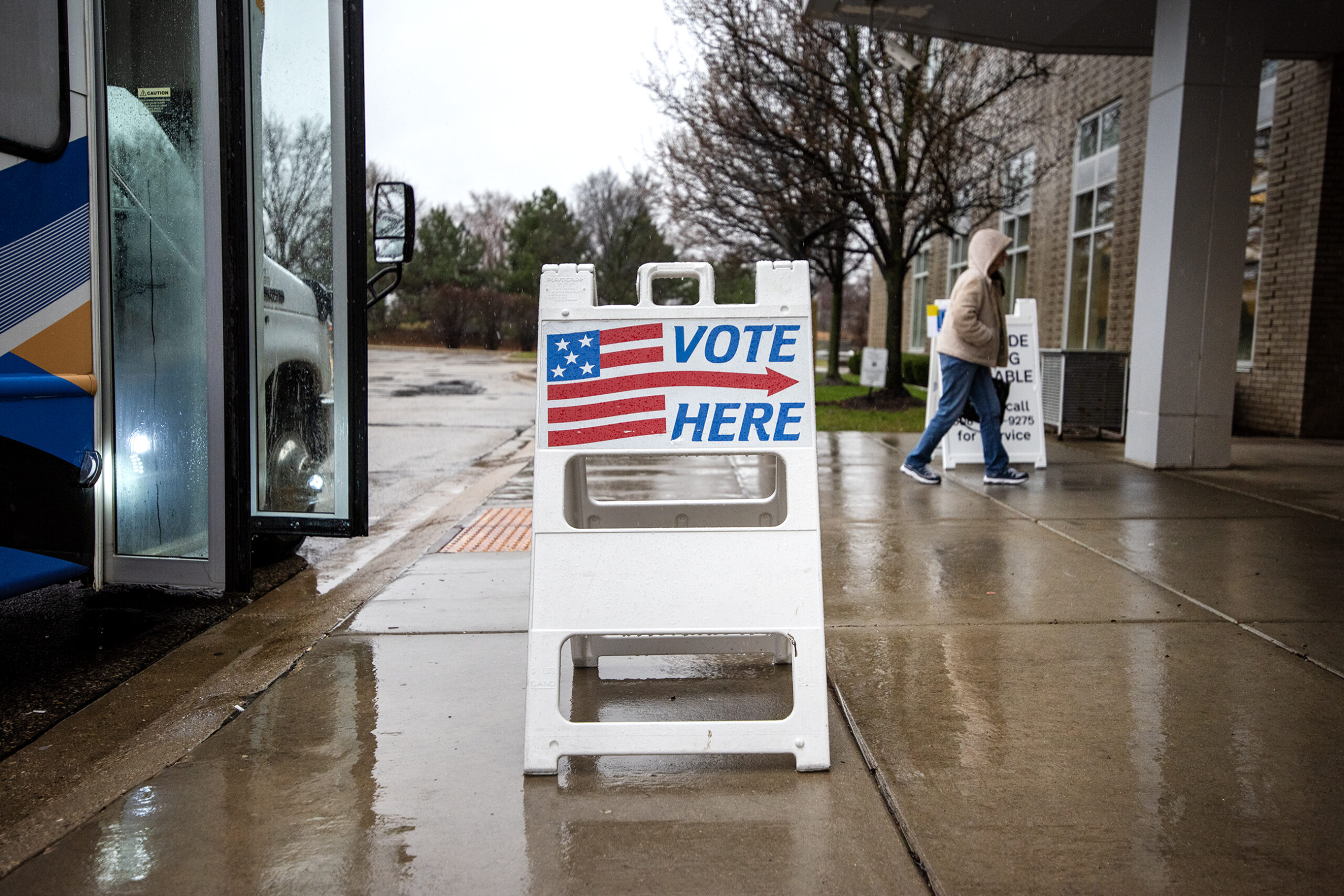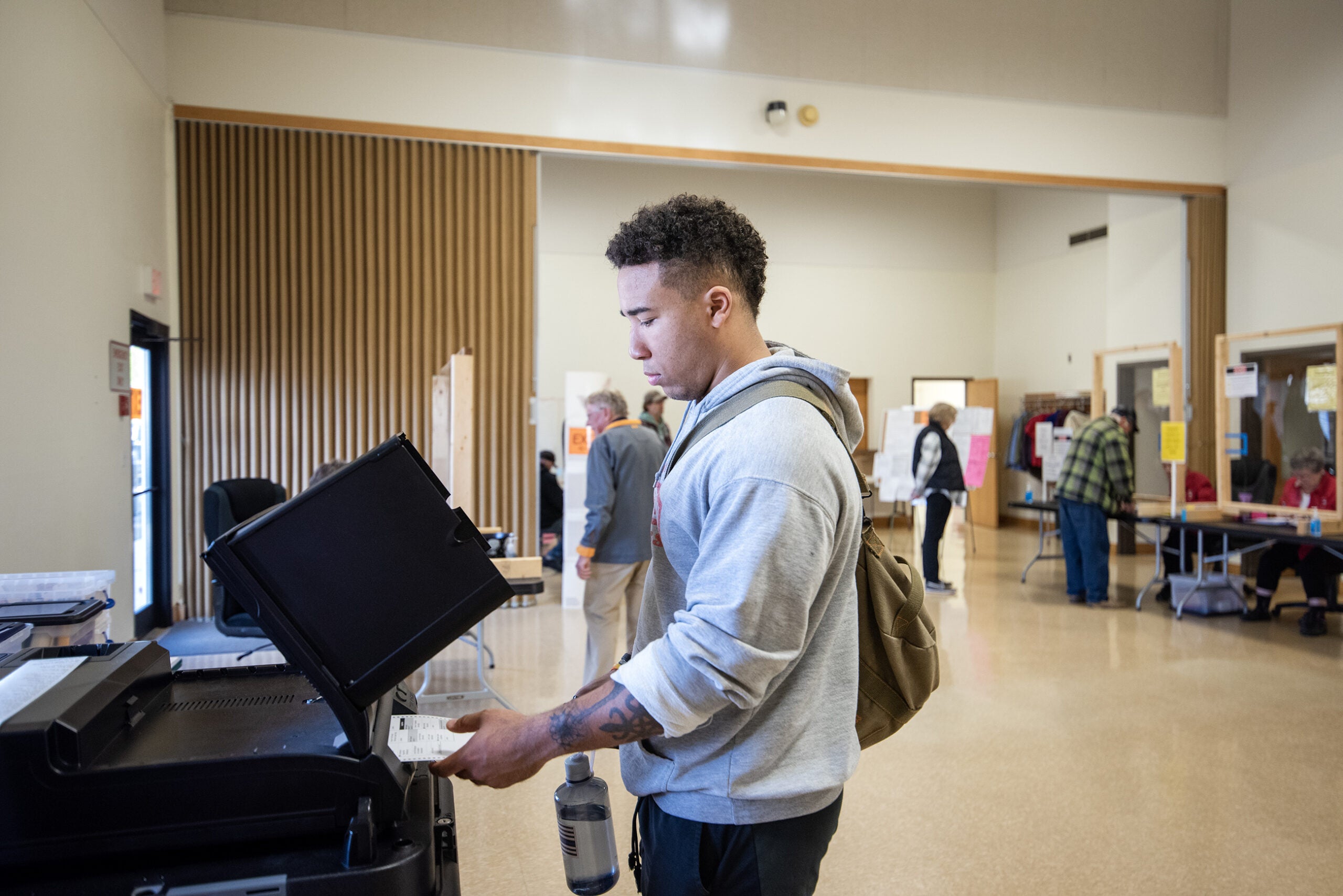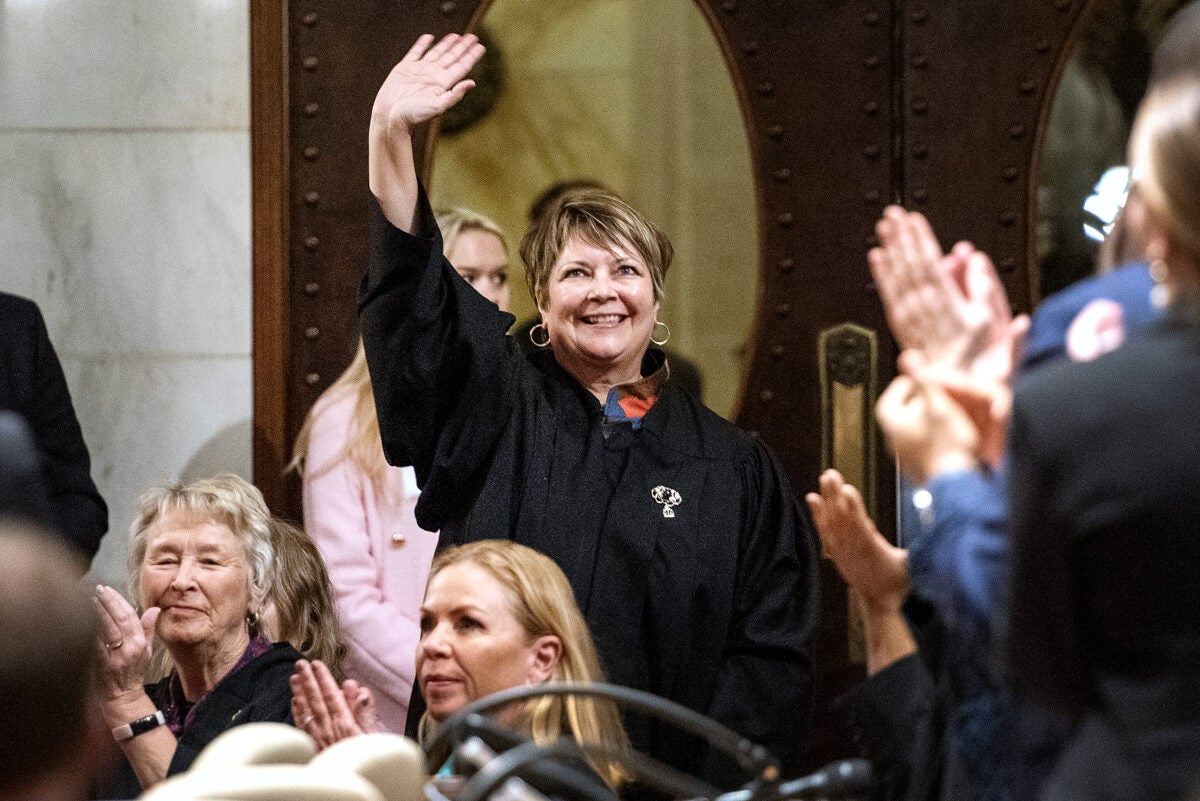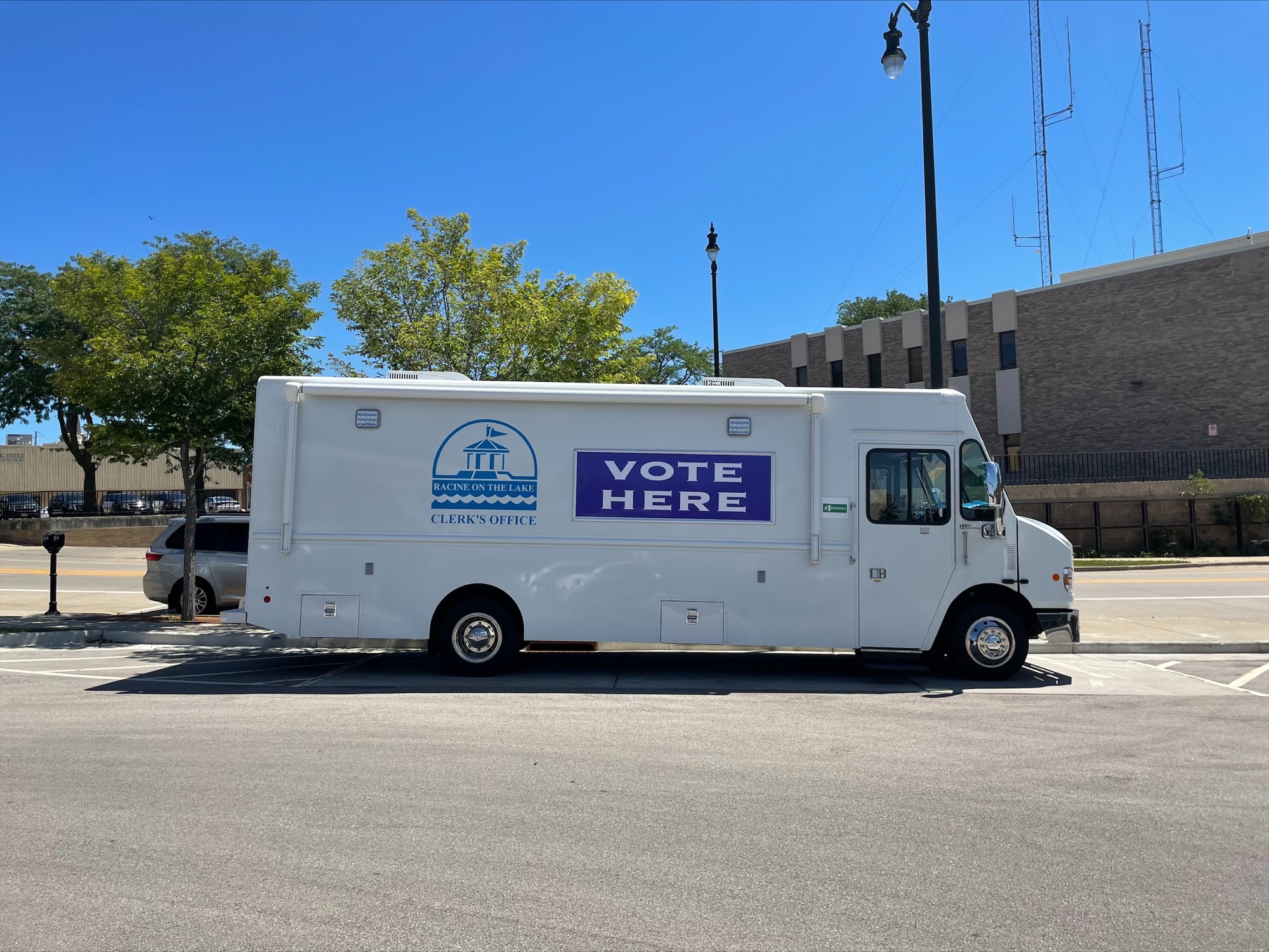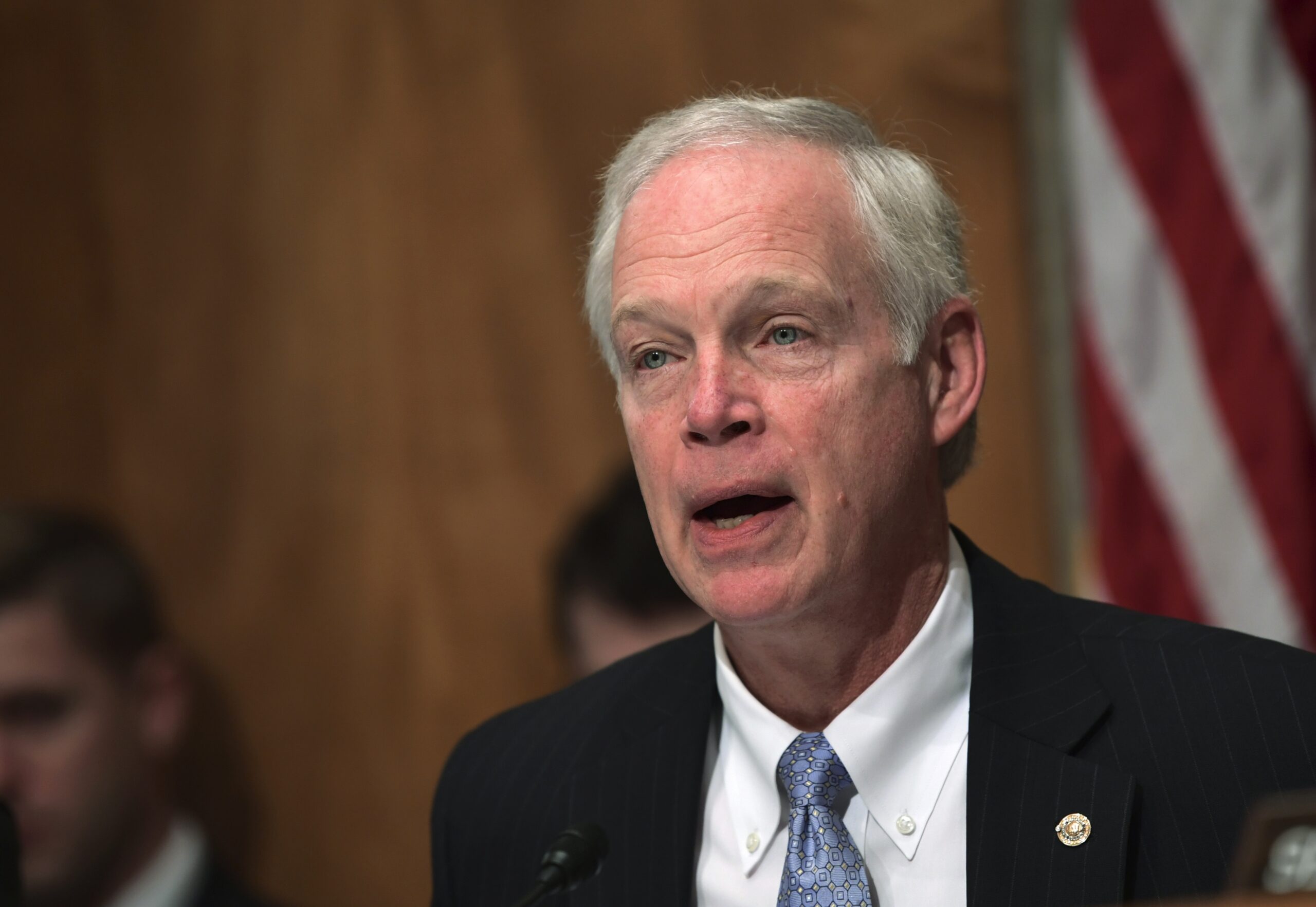Liberal Wisconsin Supreme Court Justice Janet Protasiewicz will not step aside from a case challenging the legality of an early voting van used the City of Racine in 2022.
In an order issued Thursday afternoon, Protasiewicz said she can “act in an impartial manner” in the case, rejecting arguments from the conservative Wisconsin Institute for Law and Liberty, or WILL, that she must recuse herself because the Democratic National Committee is a party to the proceedings.
A brief filed by WILL states Protasiewicz promised to stay out of cases brought by Democrats while campaigning for her Supreme Court seat. As a candidate for the court, Protasiewicz said she would not hear cases involving the Democratic Party of Wisconsin, or DPW. While the state party isn’t involved in the Racine voting van case, WILL claims the DNC donated hundreds of thousands of dollars to the DPW, which donated to the justice.
In a separate brief, the DNC argues it is a distinct entity from the DPW and such a recusal would create a “plainly unconstitutional” chilling effect on donations, including judicial donations from the Republican Party.
Stay informed on the latest news
Sign up for WPR’s email newsletter.
Elections Commission says January ruling could limit in-person absentee voting
In January, Racine County Judge Eugene Gasiorkiewicz ruled that while state election laws don’t prohibit mobile voting sites like the van used in Racine, it doesn’t allow them either.
The decision came after Racine County Republican Party Chair Kenneth Brown sued over the van, arguing it violates state law because it moves to different locations during early voting. He also alleged the van creates an opportunity to advantage one political party over another because the mix of voters in alternate locations don’t match the mix in the district where the city clerk’s office is located.
In a legal brief asking the state Supreme Court to quickly rule on the case, the Wisconsin Elections Commission said Gasiorkiewicz reached “a novel conclusion” in January with regard to the political makeup of alternate sites. The WEC states that while the case is specific to Racine, clerks around Wisconsin may follow the Gasiorkiewicz’s ruling to avoid similar lawsuits.
“Thus, for municipalities that follow the circuit court’s ‘same’ voting history theory, voters will have only one option to vote in-person absentee: the clerk’s office,” the WEC brief said.
Racine’s mobile voting van was purchased using private donations from the Center for Tech and Civic Life, which is funded by Facebook founder Mark Zuckerberg.
State residents will vote on a proposed GOP-authored amendment to the Wisconsin Constitution April 2, which will decide whether private donations for election administration should continue to be allowed in the state.
Wisconsin Public Radio, © Copyright 2024, Board of Regents of the University of Wisconsin System and Wisconsin Educational Communications Board.

